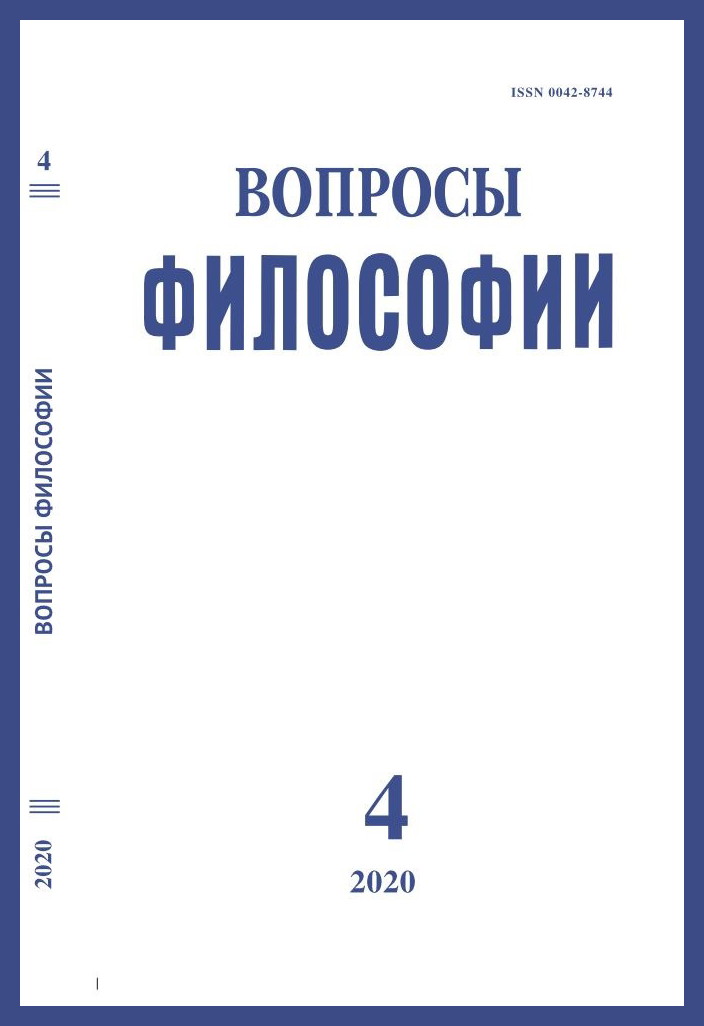Knowledge, Reason and Faith in Arab-Muslim and Christian Patristics Traditions of the Middle Ages
DOI:
https://doi.org/10.21146/0042-8744-2020-4-5-19Abstract
The authors of the article deal with the history of the emergence and development of the philosophical problem of the correlation of knowledge and faith in the comparative analysis of the traditions of Arab Muslim and East Christian medieval traditions. The authors trace the methodology of exoteric and esoteric knowledge in the interpretation of the Quran with the corresponding methods and techniques of explaining the Bible used by the Alexandrian school and the school of Antioch. In the context of comparative philosophical reflection, the researchers show special ways of treating the Islamic and Christian Scriptures. The adherents of the Islamic exoteric knowledge used the method of literal consideration of sacred texts, while the followers of the Islamic esoteric way used the allegorical and symbolic means of interpreting the Quran and Sunnah. In Christianity, Arab-Muslim exoteric knowledge is comparable with the historical-grammatical or literal interpretation of the Bible done by the School of Antioch, whereas the esoterism correlated with the allegorical, spiritual theology of the Alexandrian school. The academics pay special attention to the problem of correlation between reason and faith in the works of al-Ghazali. The peculiarities of this problem in Christianity are shown, in particular, in the reflection of the Christological theological disputes of the early Byzantine Empire. The authors analyze the sources of the Early Christian Church Fathers belonging to the Eastern, or Greek-Byzantine, branch of Christianity, particularly the works of Athanasius of Alexandria, John Chrysostom, and Cyril of Alexandria. The researchers conclude on the parallel formation of philosophical-religious knowledge in theArabian East and the area of the Byzantine Empire.

